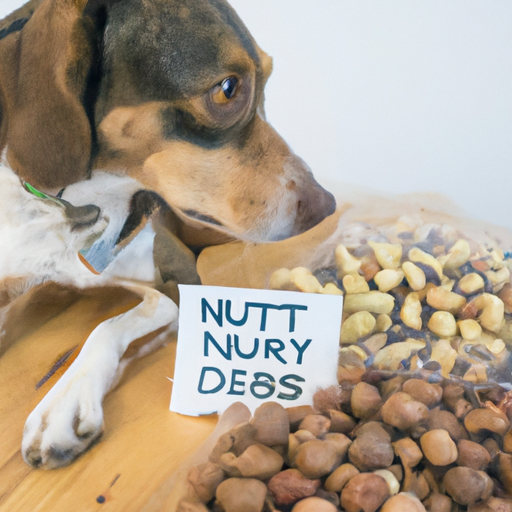As a dedicated caregiver, you always seek to provide the best for your furry friend. This includes a balanced diet, regular exercise, and of course, the occasional treat. But when it comes to nuts, it’s crucial to know which ones are safe and which could pose potential risks. Let’s explore the world of nuts from a canine perspective.
1. The Good: Nuts That Are Safe for Dogs
Most nuts are not recommended for dogs due to their high fat content and potential for causing digestive issues. However, there are a few exceptions to this rule.
Peanuts
Despite being high in fat, peanuts are not toxic to dogs. They are an excellent source of protein and can be an enjoyable treat in moderation. However, it’s essential to serve them unsalted and unflavored.
Peanut Butter
Many dogs love peanut butter, and it’s often used as a training reward. Just like with peanuts, ensure that the peanut butter you choose does not contain added salt, sugar or artificial sweeteners, especially xylitol, which is toxic to dogs.
2. The Bad: Nuts That Are Harmful to Dogs
There are certain types of nuts that you should keep out of your dog’s reach, due to their toxicity or potential to cause health problems.
Macadamia Nuts
Macadamia nuts are toxic to dogs and can cause symptoms like weakness, vomiting, tremors, and hyperthermia. If your dog has ingested these, seek veterinary help immediately.
Almonds
While not toxic, almonds can be challenging for dogs to digest and can cause upset stomach and gastrointestinal distress. They can also pose a choking hazard and should be avoided.
Walnuts
Walnuts can contain a toxin that causes seizures and neurological symptoms in dogs. They can also lead to an intestinal blockage due to their size and hardness.
Pecans
Pecans, especially moldy ones, can contain a toxin that can cause seizures in dogs. They are also high in fat and can cause stomach upset and pancreatitis.
3. The Grey Area: Nuts That Can Be Consumed with Precautions
Some nuts fall into a grey area. These are not toxic to dogs but should be given with caution due to their high fat content or potential to cause digestive issues.
Cashews
Cashews are safe for dogs to eat, but they are high in fat and calories. They should be given sparingly and always unsalted.
Pistachios
Pistachios are not toxic to dogs, but their high fat content can cause digestive issues. They also pose a choking hazard and should be given in a form that is easy for your dog to consume.
4. The Nutritional Breakdown of Nuts
Here is a table showing the nutritional breakdown of various nuts per 100g serving.
| Nut Type | Calories | Protein | Fat | Fibre |
|---|---|---|---|---|
| Peanuts | 567 | 26g | 49g | 9g |
| Almonds | 579 | 21g | 50g | 12g |
| Walnuts | 654 | 15g | 65g | 7g |
| Cashews | 553 | 18g | 44g | 3g |
| Pistachios | 562 | 20g | 45g | 10g |
5. Frequently Asked Questions (FAQs)
Q: Can I give my dog nuts as part of their regular diet?
A: No, nuts should not be a part of your dog’s regular diet. They are high in fat and can cause digestive issues. However, certain nuts like peanuts and cashews can be given as occasional treats.
Q: My dog has eaten a nut that is harmful. What should I do?
A: If your dog has ingested a harmful nut, seek veterinary help immediately. Watch for symptoms like vomiting, diarrhea, tremors, and weakness.
Q: How should I serve nuts to my dog?
A: Any nuts you serve to your dog should be unsalted, unflavored, and given in moderation. It’s also best to break them into smaller pieces to prevent choking.
As a caregiver, your dog’s health and well-being are your top priority. Understanding which nuts are safe and which are harmful will help you make informed decisions about your dog’s diet. Always remember to introduce any new food into your dog’s diet gradually and under the supervision of a veterinarian.



